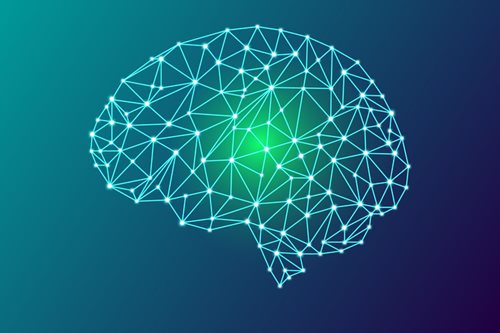22 augustus 2023
Neuroscientists at Radboudumc show that the setbacks you experience permanently change the functioning of your brain. An abnormal reaction of the brain to setbacks is also related to anxiety symptoms. This may have predictive value for the development of psychiatric disorders.
Your brain is shaped by the things you experience. That sounds logical, but can you really measure that? And what can you do with it? Neuroscientists at Radboud university medical center investigated the influence of adversity during life on patterns in the brain. They found remarkable associations that may have predictive value for the development of psychiatric disorders.
Special group
The researchers conducted the study on about 170 people. A special group, because all kinds of data have been collected from them during their lives. For this research, the scientists specifically focused on setbacks: factors or events that are known to have a negative effect on development. Consider, for example, the mother’s smoking during pregnancy, complications during childbirth, abuse or a major accident.
In addition to this data, the researchers determined the brain structure of these people with scans. They did so at both 25 and 33 years of age. Artificial intelligence was then used to find connections between setbacks and patterns in the brain. ‘They emerged very clearly,’ says researcher Nathalie Holz. ‘And these relationships are very stable. We found them at both ages. Thanks to these findings, we can now predict how the brain reacts to setbacks.’
Anxiety complaints
‘I think it’s very special that we can still trace the influence of events that sometimes took place 25 years ago in the brain,’ says research leader André Marquand. ‘And perhaps more importantly, that could help us predict who is more likely to develop psychiatric disorders.’
How about that? Marquand explains: ‘We have mapped out how the brain normally reacts to setbacks. That is why we can also determine when that reaction is abnormal. And we saw that such a deviating pattern was related to anxiety symptoms.’ Such complaints play a central role in many psychiatric disorders.
The scientists expect that their findings may ultimately contribute to the earlier detection of psychiatric disorders. This allows healthcare providers to treat patients earlier and more effectively. But more research is needed before that happens. For example, the researchers are now applying their method to a group of patients with these disorders. This should show how great the predictive value is.
About the publication
This research is published in Nature Neuroscience: A stable and replicable neural signature of
lifespan adversity in the adult brain. NE Holz, M Zabihi, SM Kia, M Monninger, PM Aggensteiner, S Siehl, DL Floris, ALW Bokde, S Desrivières, H Flor, A Grigis, H Garavan, P Gowland, A Heinz , Brühl R , Martinot JL , Paillère Martinot ML , Orfanos DP , Paus T , Poustka L , Fröhner JH , Smolka MN , Vaidya N , Walter H , Whelan R , Schumann G , Meyer-Lindenberg A , Brandeis D , Buitelaar JK , Nees F , Beckmann C , IMAGE Consortium , Banaschewski T , Marquand AF . DOI: 10.1038/s41593-023-01410-8.
2023-08-22 06:07:42
#Setbacks #change #brains #permanently #Abnormal #reaction #setbacks #increase #risk #psychiatric #disorders


